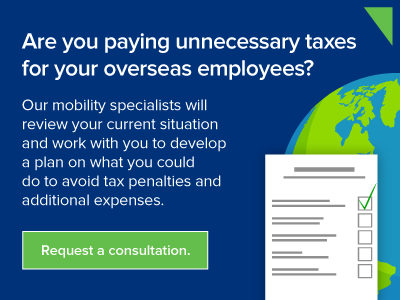While COVID-19 continues to impact the world of business travel, there are still many companies with mobile workforces. Essential business trips didn’t stop when the pandemic hit for employees who continued to travel due to the nature of their job responsibilities. And in the current world climate, “mobile workforce” now includes remote working, work from anywhere, and commuting—all of which have seen an increase in popularity during the pandemic. While these work situations may be somewhat temporary, there are still tax risks and compliance requirements that need to be addressed.
Looking for something specific?
Is Business Travel Dead?
Colleagues, peers, mobility professionals, and even my kids have asked me if COVID-19 means the end of business travel. And over the past two months, the traditional questions being asked have changed from a focus on business travel issues, the need to track business travelers, and how to manage the process, to questions about working through country travel bans, tax exemptions, and the immediate mobility tax risks of employees being in a location they might not have expected to be in. While we don’t have all the answers, we are working through these questions, determining next steps, and creating solutions together that can be used well into the future.
What to anticipate in a Post-Brexit Europe
UPDATED: February 7, 2020
On January 31, 2020 the UK left the EU and has entered into an 11-month transition period. Now that this departure has taken place, it is a good time to carefully review the impact this will undoubtedly have on employees assigned to the EU.
Best Practices for Managing Your Business Traveler Program
In this mobile age, your employees are just as likely to work with clients from a desk down the hall as they are to work from different facilities halfway around the world. This makes keeping track of your organization’s business travelers a challenge—one that could potentially add complexity, costs, and risks.
Be Aware of These 5 Risks When Managing Your Business Traveler Program
Whether employees travel across state lines or international borders, when your organization supports a business traveler program, the responsibility for risk management extends beyond the executive and financial suites. Human resources specialists also play crucial roles in helping recognize and reduce exposure to potential liabilities. After all, you’re in the best position to anticipate and react when employees encounter the unexpected while traveling.
Social Security within the EU, EEA, and Switzerland
Last week we shared information about withholding US social security tax from wages. This week, we want to talk about social security within the European Union (EU), European Economic Area (EEA), and Switzerland. Many of the conversations we have with companies sending business travelers intra-EU involve a deep sigh and a shake of the head. Getting the Posted Worker Directive (PWD) and social security withholding obligations correct when sending an employee from one EU-member state to another is a necessary statutory requirement; yet for most it is an administrative challenge.



